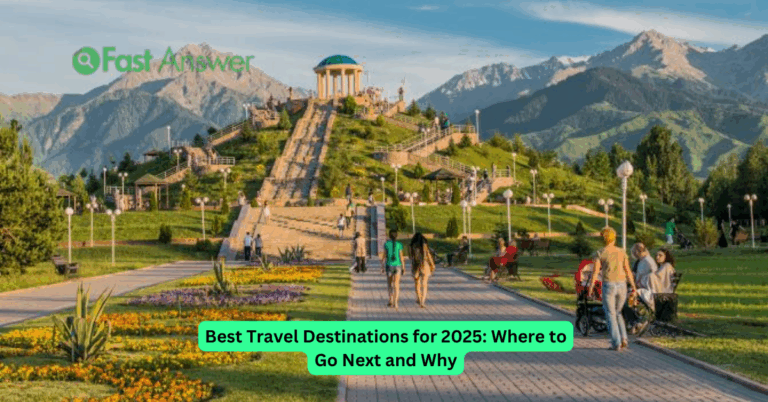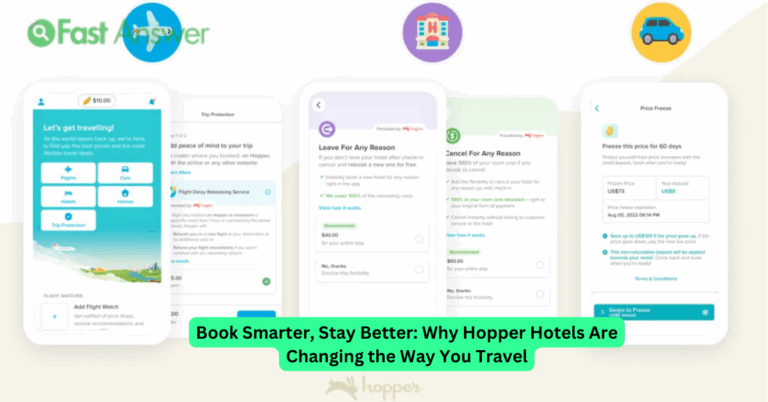Benefits of Slow Travel Experiences: Discover More by Going Less
In a world that’s constantly rushing, slow travel offers a refreshing alternative. It’s not about how many countries you can check off a list it’s about how deeply you connect with each place. Slow travel prioritizes meaningful experiences over fast-paced itineraries, encouraging travelers to stay longer, immerse themselves in local culture, and form genuine relationships along the way. Whether you’re a digital nomad, a long-term explorer, or someone seeking more intention in your journey, understanding the benefits of slow travel experiences can transform the way you see the world and yourself.
Create Deeper Cultural Connections That Last
One of the most powerful outcomes of slow travel is the opportunity to build authentic connections with the places and people you encounter. Instead of breezing through major tourist sites, slow travelers take time to understand local customs, engage in conversations, and participate in daily routines. From learning traditional recipes to attending community events or simply chatting with neighbors, these interactions offer insight that no guidebook can replicate. When you stay longer, you’re not just passing through you become part of the rhythm of life, and the experiences you gain are richer and far more personal.
Reduce Stress and Travel Fatigue Naturally
Fast travel often leads to burnout. Jumping from one location to another, managing tight schedules, and constantly packing and unpacking can drain your energy and dull your excitement. Slow travel removes the pressure to “do it all” and instead allows space for rest, spontaneity, and presence. With more time in each location, you can find your own pace whether that means enjoying leisurely breakfasts, wandering through local parks, or simply having time to reflect. By traveling slower, your vacation becomes more restful and less about checking boxes, which ultimately makes it more enjoyable and sustainable.
Travel More Sustainably and Responsibly
Slow travel naturally aligns with sustainable tourism principles. When you stay in one place longer, you reduce your carbon footprint by minimizing flights, train rides, or car journeys. It also allows you to support local economies in meaningful ways shopping at markets, dining at family-run restaurants, and booking accommodations that reinvest in the community. Choosing to travel slower helps preserve the cultural integrity and environmental health of your destination. As responsible travel becomes more important globally, slow travel stands out as a conscious way to explore with care and impact.
Save Money Without Sacrificing Experiences
Contrary to the belief that extended travel must be expensive, slow travel often proves more affordable. Longer stays typically allow for discounted accommodation rates, reduced transport costs, and the ability to cook your own meals or negotiate better deals with local vendors. Because you’re not constantly moving, you avoid pricey transit tickets and focus your spending on experiences that truly matter. Slow travelers often find they enjoy more while spending less, thanks to a relaxed pace and a stronger connection to the local way of life proving that quality doesn’t have to come at a premium.
Experience Personal Growth Through Intentional Living
Beyond the external benefits, slow travel creates space for internal transformation. Spending time in one place allows you to reflect more deeply, build habits that ground you, and observe how different environments influence your thoughts and emotions. It teaches patience, flexibility, and mindfulness skills that are valuable both on the road and back home. Slow travelers often return with more than souvenirs; they return with clarity, gratitude, and a renewed sense of purpose. By choosing depth over distance, you create a journey that enriches not just your passport, but your personal perspective.
Frequently Asked Questions
Is slow travel suitable for short trips or vacations?
Yes, even a weeklong trip can be a slow travel experience if you focus on one destination and take time to explore it deeply rather than rushing between multiple cities.
How does slow travel benefit local communities?
Staying longer supports local businesses and promotes cultural exchange, allowing travelers to spend money more intentionally and contribute to the local economy in meaningful ways.
Can I practice slow travel while working remotely?
Absolutely. Slow travel aligns well with remote work, giving digital nomads a chance to explore a new place while maintaining a comfortable, productive lifestyle.
Do I miss out on key attractions by traveling slowly?
Not necessarily. You can still visit major sights but you do so at your own pace, with time to explore lesser-known gems and appreciate what makes each place unique.
What’s the best way to start transitioning to slow travel?
Begin by choosing one destination for your next trip, staying at least a week, and avoiding packed itineraries. Focus on local experiences and allow room for spontaneity.



